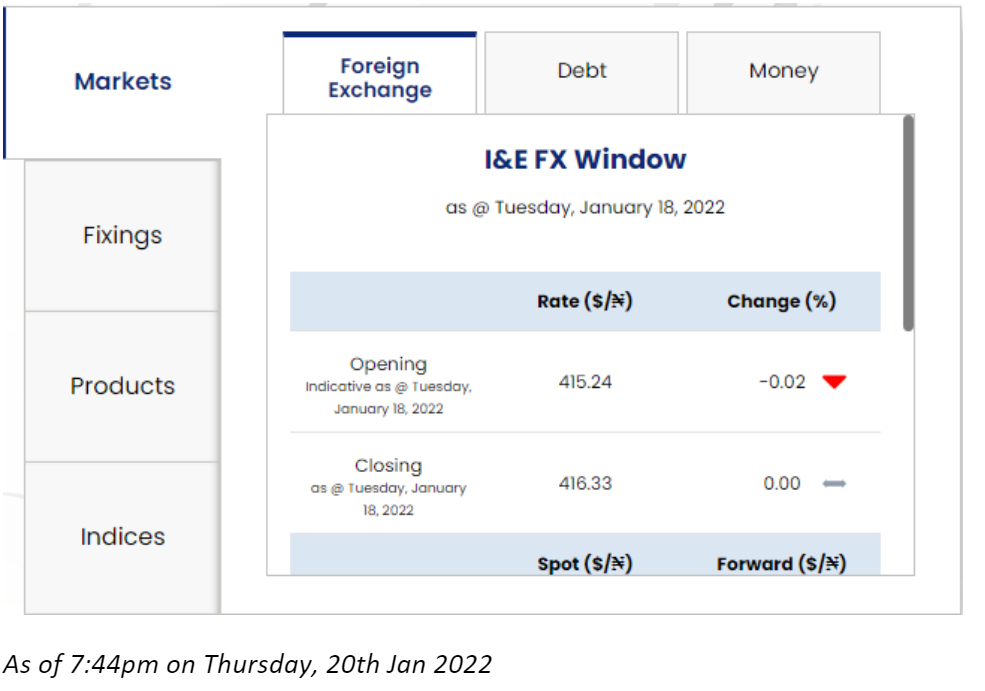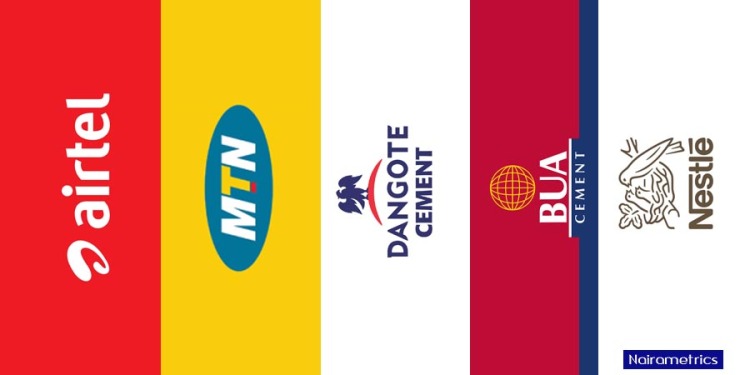The major source for tracking the official exchange rate in Nigeria, the FMDQ, has stopped publishing the official (I&E Window) exchange rates on its website at the close of business, denying the public very vital information used for transactions.
This is based on observations made by various FMDQ users who rely on the information on a daily basis. This was also confirmed by analysts at Nairametrics who have monitored the situation over the past 10 days when it started. The data has always been published daily on the front page of the website of the FMDQOTC since the window was introduced in 2017.
However, the FMDQ website now reports the official rate with a 2-day delay, a decision that is expected to significantly impede quick investment decisions by Nigerian investors and also deprive users of this information of vital data.
Nigerians denied vital data
The Investors & Exporters Window (I&E) official exchange rate is relied upon by tens of thousands of businesses in the country for making business decisions such as imports and exports, conversion of FX balances, payment for goods and services, etc.
It is also relied on by foreign investors in determining the conversion rate for investments into the country. It is also used by academics, researchers, and the media in documenting and analyzing the exchange rate and its impact on Africa’s largest economy.
Not only did the FMDQ delay the closing price for the exchange rate, but it also delayed publishing opening and closing rates, daily highs and lows, as well as daily turnover. It also extended the delay to other daily indices like the money market rate, S&P Sovereign bond index, NIBOR, NAFEX as well as the NITTY rates.
This change was first noticed on Monday, 11th January 2022, when the rate as of the close of trading in the previous week was not updated. It was initially seen as a glitch on the website, but almost two weeks down the line, it appears the group is beginning to deprive the public of real time-sensitive data.
What is the motive?
Speculations among users of the information suggest this might be a playbook of the Central Bank whose Deputy Governor chairs the board of FMDQOTC. The Central Bank has often been criticized on social media of often notorious for removing vital economic reports from its website or delaying its release, especially where the numbers are not favourable.
However, a reliable source at the FMDQ reveals the decision was actually driven by financial and business considerations explaining that the delay was deliberate. The source explains FMDQ recently revamped its product offering and considered close of day indicators data it can monetize, thus the two-day delay.
The source claimed anyone who wants to know the closing exchange rate and market turnover should either pay for it to get it during close or business or get it for free after two days.
The decision by FMDQ to delay vital data on its website home page is a huge shift from its rival Nigerian Exchange which publishes vital stock market data and yet still operates premium service offering for users who want more information and insights to trades, valuations, etc.
Recall, that the Central Bank banned AbokiFX, an online blog displaying parallel market rates last year, with allegations of rate fixing and manipulation last year.
How does this affect you?
- Nairametrics and other media outlets report the daily movement in the official market, which serves the purpose of feeding the investing public and FX interested Nigerians the latest changes in the official exchange rate.
- In addition, in May 2021, the Central Bank adopted the rate at the I&E window as its official exchange rate dropping decades-long use of a fixed exchange rate.
- The information, which is meant to educate and inform prompt decisions is now being intentionally withheld by the trading house, which should ideally feed the public with timely and accurate data.
- Suffice to add that the Central Bank clampdown on abokiFX last September suggests it prefers that Nigerians cite the FMDQ as the source for determining exchange rate and not the black market. This decision by the FMDQ to delay rates may not help this situation.
- Nigerians already rely on P2P websites to determine black market rates.


















